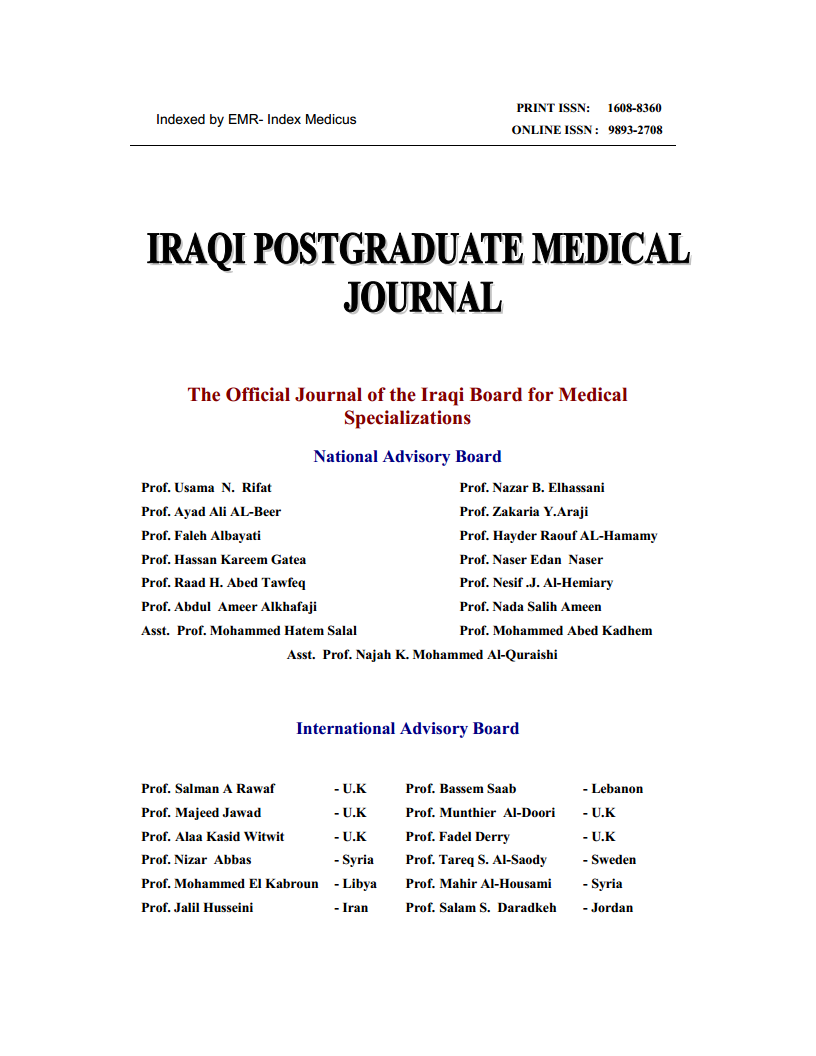Abstract
BACKGROUND:
Brain metastasis represents a significant source of morbidity and mortality in patients with systemic cancer, In adults, cerebral metastasis are by far the most common intracranial tumors, and their incidence is rising because of increased cancer survival.
GKRS has arguably been the most important advancement in the management of metastatic brain tumors since the 1980s.
PATIENTS AND METHODS:
This is a prospective study of 50 patients of brain metastasis treated with (GKRS) between January 2017 and January 2019. A group of 14 males and 36 females with mean age was 59.1 years, 34 patient were <65 years old and 16 patients were >65 years old.
Patients status assessed according Karnofsky Performance Score (KPS), 4 % were >70 KPS and 96% were <70 KPS. The lung cancer was the primary lesion in 56% of patients, breast was 32%, and Skin Melanoma 8% and unknown origin 4%.
80% of the patients had previous treatment: surgery and chemotherapy (22%), chemotherapy (20%), surgery (16%), surgery, chemotherapy and DXT (10%), surgery, chemotherapy and WBRT (8%) WBRT (2%) and DXT (2%), while absent in 20%.
Brain MRI with contrast follow up was done in 6 months, and after 12 months
RESULTS:
After 12 months of follow up the mean of tumor volume after (GKRS) decrease from 6.2cm3 to 3.4cm3 , The mean KPS improve from (61) to (75) , Local tumor recurrence was (16%) and edma was seen in (20%) ,The Age of patients > 65, KPS < 70, patients with previous treatment surgery, chemotherapy and WBRT had poor prognosis ,The mortality was seen in (20%) half of them related to neurological death and the other to primary tumor.
CONCLUSION:
The Gamma knife radiosurgery is effective and safe treatment modality of secondary brain metastasis and is effective in increasing survival rate and Karnofsky performance scale in addition to reduction of the tumor size of patients with brain metastasis.
Brain metastasis represents a significant source of morbidity and mortality in patients with systemic cancer, In adults, cerebral metastasis are by far the most common intracranial tumors, and their incidence is rising because of increased cancer survival.
GKRS has arguably been the most important advancement in the management of metastatic brain tumors since the 1980s.
PATIENTS AND METHODS:
This is a prospective study of 50 patients of brain metastasis treated with (GKRS) between January 2017 and January 2019. A group of 14 males and 36 females with mean age was 59.1 years, 34 patient were <65 years old and 16 patients were >65 years old.
Patients status assessed according Karnofsky Performance Score (KPS), 4 % were >70 KPS and 96% were <70 KPS. The lung cancer was the primary lesion in 56% of patients, breast was 32%, and Skin Melanoma 8% and unknown origin 4%.
80% of the patients had previous treatment: surgery and chemotherapy (22%), chemotherapy (20%), surgery (16%), surgery, chemotherapy and DXT (10%), surgery, chemotherapy and WBRT (8%) WBRT (2%) and DXT (2%), while absent in 20%.
Brain MRI with contrast follow up was done in 6 months, and after 12 months
RESULTS:
After 12 months of follow up the mean of tumor volume after (GKRS) decrease from 6.2cm3 to 3.4cm3 , The mean KPS improve from (61) to (75) , Local tumor recurrence was (16%) and edma was seen in (20%) ,The Age of patients > 65, KPS < 70, patients with previous treatment surgery, chemotherapy and WBRT had poor prognosis ,The mortality was seen in (20%) half of them related to neurological death and the other to primary tumor.
CONCLUSION:
The Gamma knife radiosurgery is effective and safe treatment modality of secondary brain metastasis and is effective in increasing survival rate and Karnofsky performance scale in addition to reduction of the tumor size of patients with brain metastasis.
